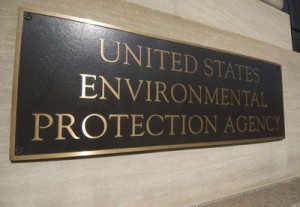587 item(s) were returned.
Since the development of the Yucca Mountain Nuclear Waste Repository was terminated in 2011, no long-term plan for storing spent nuclear fuel accumulating at nuclear power plants has been developed. As a result, utilities have been forced to store spent nuclear fuel “on site,” where storage space grows tight and is increasingly expensive to manage. The federal government is required by law to provide (since 1998) offsite storage for spent nuclear fuel, but has yet to do so. Furthermore, until last month’s ruling by a federal appeals court, the Department of Energy (DOE) had been collecting a fee from nuclear… [more]
View InsightPrincipal
Brinch Consulting
Changes in the electric power industry are well underway in many states across the U.S. As a result of numerous drivers – including the need to address climate change, natural gas prices, retiring coal plants, the pace of grid modernization – many electric utilities are changing the way they interact with their customers and considering how to adapt their business and planning models. Third party vendors are marketing new energy services (view site to know more about the marketing firm that is helping them) and regulators, legislators, and consumer advocates are evaluating the existing policy landscape to consider ways to… [more]
View InsightDirector of International Public Policy and Advocacy
Global Innovation Policy Center, U.S. Chamber of Commerce
The United States is set to become the world’s number one producer of oil and gas combined. But since the oil crises of the 1970s, U.S. energy policy has been based, either implicitly or explicitly, on the assumption of scarcity of U.S. resources. This has resulted in strong support for open and transparent global energy markets, which are expected to reduce volatile (and high) prices for U.S. customers and enable U.S. companies to access foreign energy supplies. What policy makers now have to reckon with is what the re-discovery of a bounty of domestic supplies (of oil and gas) means for U.S. energy policy,… [more]
View InsightVice President, US Retail Regulatory Strategy
National Grid, US
With the exception of EPA rulemaking and stimulus, federal energy policy has been at a virtual standstill since EISA 2007. That makes state legislatures and regulators the focal point for new ideas. California, with its aggressive efficiency and renewable targets, has continued to be a key market for addressing the financial and operational costs of configuring a new energy system. In a previous life, I remember an industry colleague’s advice on drafting energy legislation; “create principles regulators can tweak rather than inflexible legislative fiat”. This expression comes to mind as a litmus test for California’s new landmark energy legislation; Assembly… [more]
View InsightVisiting Scholar
American Enterprise Institute
According to the Environmental Protection Agency, the Social Cost of Carbon (SCC) is supposed to be “An estimate of the economic damages associated with a small increase in carbon dioxide (CO2) emissions, in a given year”. However, the EPA’s “analysis” of the “social cost of carbon,” developed recently as justification for a rule constraining energy use by microwave ovens, ignores the fact that U.S. emissions of greenhouse gases are about 17 percent of the world total. Therefore, even an immediate reduction by half in U.S. emissions would yield a reduction in world temperatures of about one-tenth of one degree by… [more]
View InsightManaging Director, Industrial & Environmental Section
Biotechnology Industry Organization
A recent editorial in the Wall Street Journal, co-signed by Rep. Patrick Meehan (R-Pa.), argues that growing renewable fuel obligations under the federal Renewable Fuel Standard (RFS) have come into direct conflict with declining U.S. demand for transportation fuel. The editorial asserts that current fuel distribution infrastructure and automobile engine guidelines limit the amount of ethanol that can be blended into gasoline to 10 percent, creating a “blend wall” beyond which further blending of ethanol becomes economically unreasonable. Meanwhile, in response to high fuel prices, consumers have radically curbed their driving habits and sought out new cars that meet more… [more]
View InsightSenior Policy Analyst
Information Technology and Innovation Foundation
Most clean energy advocates believe that the world has all the low-carbon technologies needed to effectively address climate change. In their view – what we describe as the Clean Energy Deployment Consensus – the world doesn’t need technology breakthroughs, but political breakthroughs to drive widespread deployment of clean energy technologies. This translates to a policy environment heavily weighted towards deployment subsidies, mandates, and carbon prices. But The Information Technology & Innovation Foundation (ITIF) argues in its new report, “Challenging the Clean Energy Deployment Consensus,” that the world needs a more comprehensive Innovation Consensus that focuses on developing and deploying affordable… [more]
View InsightA report, “Fuel Choice for American Prosperity,” recently published by the United States Energy Security Council (USESC), a group within the Institute for the Analysis of Global Security (IAGS), identifies challenges facing the United States’ pursuit of energy security. Despite oil imports expected to fall to their lowest level since 1987 (EIA), the total amount of money the U.S. spends on oil imports has increased. If energy security is defined as “reliable supply at an affordable price,” as the report’s authors define, the U.S. has improved the former, but failed to impact global oil prices, which have risen more than… [more]
View InsightIt has been recently suggested that natural gas is a more climate friendly alternative to many fossil fuels, and a necessary “bridge” to a low carbon future. The main component of natural gas is methane, which is a powerful GHG that has significantly more heat trapping potential than CO2. Natural gas is the cleanest burning fossil fuel, yet when it is extracted from the ground, unburned methane can escape into the atmosphere. Significant discussion has developed around the extent of these fugitive emissions and whether they undermine the climate benefits of using natural gas as a primary fuel. A 2011… [more]
View InsightChief Strategy Officer and SVP for Policy
American Council On Renewable Energy (ACORE)
With the recent growth of the distributed generation energy market and incentives for customers to produce their own energy and sell excess energy back to the grid, known as Net Energy Metering (NEM) in place in over 40 states, the traditional utility model has come into question. Facing competition from those who generate a portion of their own power and an associated loss in revenues, there is growing speculation that the traditional utility will struggle to survive if it doesn’t adapt to new market conditions. The Edison Electric Institute deemed rooftop solar “disruptive” – a threat to the traditional utility… [more]
View Insight








